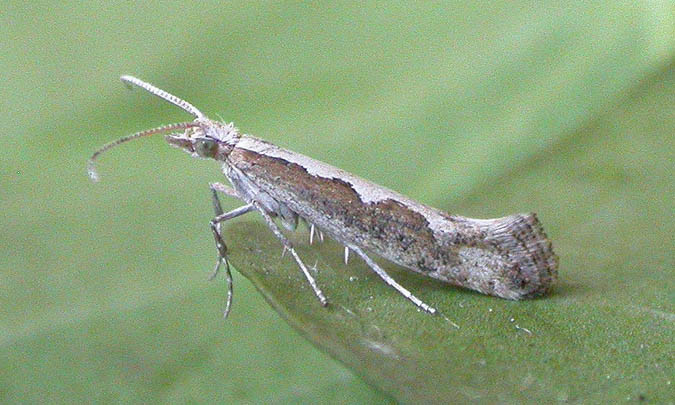
Consumers shopping for Christmas sprouts this year could find themselves with less of a choice after British crops are seeing losses from diamondback moths pests.
Diamondback moths, often called 'super-pests', have been arriving in the UK from continental Europe in record numbers and are insecticide resistant.
Rothamsted Research's Dr Steve Foster, who led the research, said: "Pyrethroids are normally the first choice of insecticides against moth pests but these tests indicate that resistance is present in the UK DBM population over a wide geographical spread."

National Farmers' Union said it will be working closely with supermarkets with regards to any supply scares after growers in Lincolnshire reported failures in up to 60% of their crops.
Diamond-back moth may infest crops throughout the UK and the larvae can cause damage to the foliage of cabbage, cauliflower, broccoli, Brussels sprout, kale, Chinese cabbage, swede, turnip, oilseed rape and radish.
Large infestations can cause damage to up to 100% of plants but yield losses will depend on the impact of damage on plant growth and quality. Good control is particularly important where the marketable part of the plant is damaged (cabbage, cauliflower, broccoli, Brussels sprout).
'Biggest pile of damaged sprouts ever seen'
Farmer Mike Capps, of RM Capps Ltd, near Boston in Lincolnshire, told the BBC the damage had been considerable: "We've had the biggest pile of damaged sprouts ever seen. We’ve actually had one field where we have thrown away about 60% of the crop, so we are below production cost."
Earlier this week, it was reported that one of the biggest vegetable growers in the Channel Islands lost his entire Christmas supply to the diamond-back moth.
A report on behalf of AHDB Horticulture, an agricultural research firm, found there was a large migration of diamond-back moths in late May. These moths laid eggs quite soon after they arrived in the UK and their caterpillars had caused considerable damage in some locations.
Infestations are sporadic, so control may not be necessary in every crop in every year. Weather that favours migration from continental Europe increases the risk of infestation, as the diamond-back moth does not overwinter in the UK in large numbers at present. The moths are relatively poor flyers but may be transported long distances by the wind.
